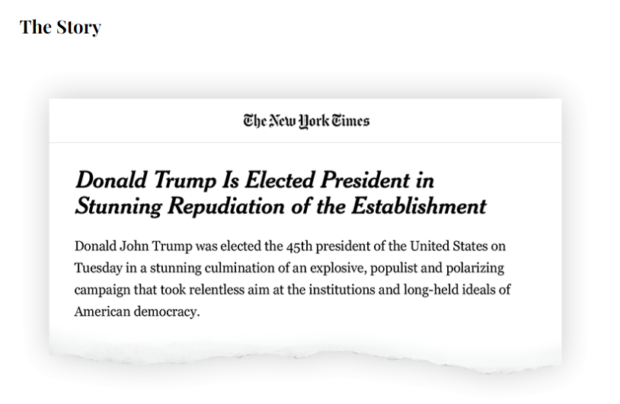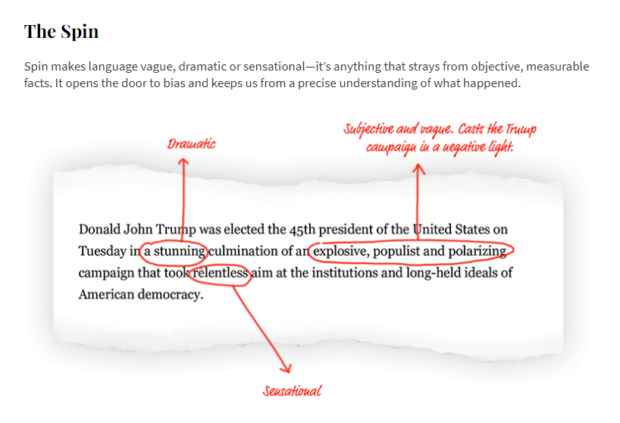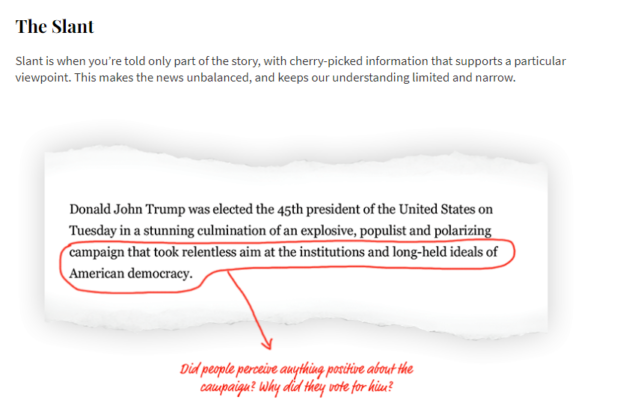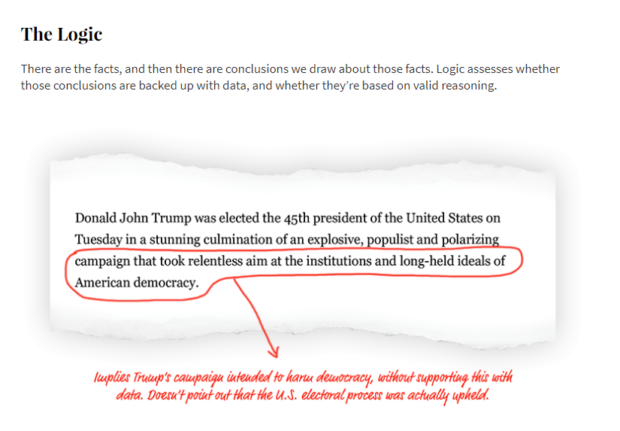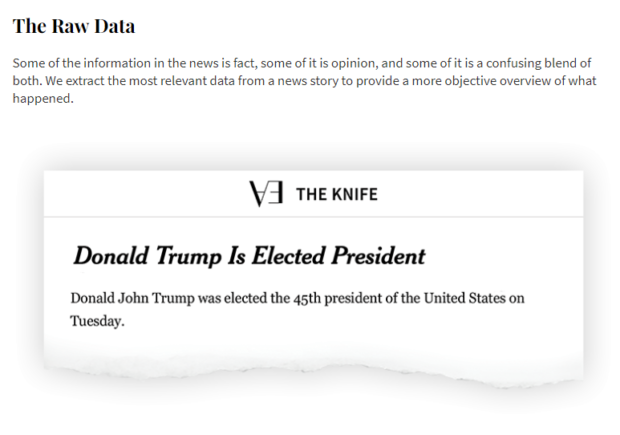Emotive Conjugation Dictionary
This dictionary will be a compilation of various emotive conjugations.
In rhetoric, emotive or emotional conjugation mimics the form of a grammatical conjugation of an irregular verb to illustrate humans’ tendency to describe their own behavior more charitably than the behavior of others.[1]
It is often called the Russell’s conjugation[2] in honour of philosopher Bertrand Russell who expounded the concept in 1948 on the BBC Radio programme The Brains Trust,[3] citing the examples:[4]
I am firm, you are obstinate, he is a pig-headed fool.
I am righteously indignant, you are annoyed, he is making a fuss over nothing.
I have reconsidered the matter, you have changed your mind, he has gone back on his word.
Source: Wikipedia
Basically ‘Emotive Conjugations’ or ‘Russel Conjugations’ are ‘Bias Linguistic Constructions’.
This database will allow other tools and processes to do work with that knowledgebase. In the knowledgebase, there can be various types of meta data attached to the various emotive conjugations. This will allow various processes to be done. It will also help to sort and search through the data set.
Some of the tools for this will be to do emotive conjugation detection in articles in various domain spaces such as news, politics, and philosophy, to name just a few. When those detections are made via an internet browser extension or something similar, the tool can highlight those emotive conjugations or replace them with something that is neutral. Perhaps you could even have the tool restructure the content to be more neutral all together. It could also do things like logical analysis on the content to see how coherent it is and if there are premises that should probably be supported in some way. You can likely attach all sorts of logical parameters to the various emotive conjugations. A library of those logical parameters could exist as a library in the tool to be assigned when an emotive conjugation needs updated.
We can already plug some of these emotive conjugations into a browser extension that detects character sets and replaces them with whatever you tell it to replace it with. Word Replacer – Google Extension
This emotive conjugation data set can be gathered up in a variety of ways. Most will have to do with aggregation of articles together in various domains and then words and phrase sets being filtered out so that you have a list without redundant words within it. You can also then use other methods to apply to that data set such as searching out adjectives, adverbs, and nouns that have emotive connotations. You likely could just gather up all the adjectives, adverbs, and nouns and figure out which ones have emotive connotations. It seems that most dictionaries already have done a lot of the hard work by saying what a word is in terms of adjective, adverb, and noun as well as including information about if there is a slur, derogative, or otherwise a quality value definition or usage of the word.
You can hear Eric Weinstein talk a bit about the media here:
https://youtu.be/1opA-JWv5fs
Eric also wrote about it here: https://www.edge.org/response-detail/27181
Emotive Conjugations are used in many places other than just the media. People use them in every day conversations with one another. They refer to various things with emotive conjugations to express agreement, contempt, or boredom with something. It gets more noticeable it seems when you get into deep conversations about things that people hold very dear to themselves or feel are very important. Some people classify themselves as entrepreneurs, others refer to them as grifters. Some people say that they work as a YouTuber, and other people say they don’t have a real job and should get one. Some of the time it is hard to detect when people are saying these things because they are not singular words and not word sets, but instead just a logical concept itself that is commonly detected by a person.
Why should we care about these things? Bias Detection
It changes how we interpret information, it gives us a predetermined feeling of how we should feel about a thing and doesn’t allow us to evaluate how we feel or think about a thing based on the bare information given to us. Adding some flavor to a statement or question doesn’t have to include these emotive conjugations that are trying to force their own frame of the world upon us. Just as I did with that last sentence, I used a bit of visual terminology to create a way to view the concept without saying there was anything positive or negative about it. Well maybe. Force might have been a bit of a push…
Some Applications
Detect other people’s biases and your own. See the world more clearly.
People can have this as a browser extension. People can add or report or modify the emotive conjugations and get on a leaderboard if they get something into the database from their report or suggestion.
Monetization: People can get a free trial for a period of time or x amount of uses that are free and then pay after that. Maybe they have ads and can pay to get rid of them. Maybe do cross promotions with other services. It can have a donation supported system.
Use it as a software as a service. News agencies can do this against one another. Bloggers or YouTubers can use it for their articles and videos.
— — — —
NOTES TO INTEGRATE
Add spin, slant, etc. graphics. Emotive conjugations are mostly about spin. Slant is something that is going to require a lot more data to figure out what data was included and what wasn’t. You have to have something from outside the image to know that there was something outside the image to consider.
The following images help show this situation. The images are screenshots from the archived and defunct Knife Media website.
https://www.allsides.com/media-bias/how-to-spot-types-of-media-bias
